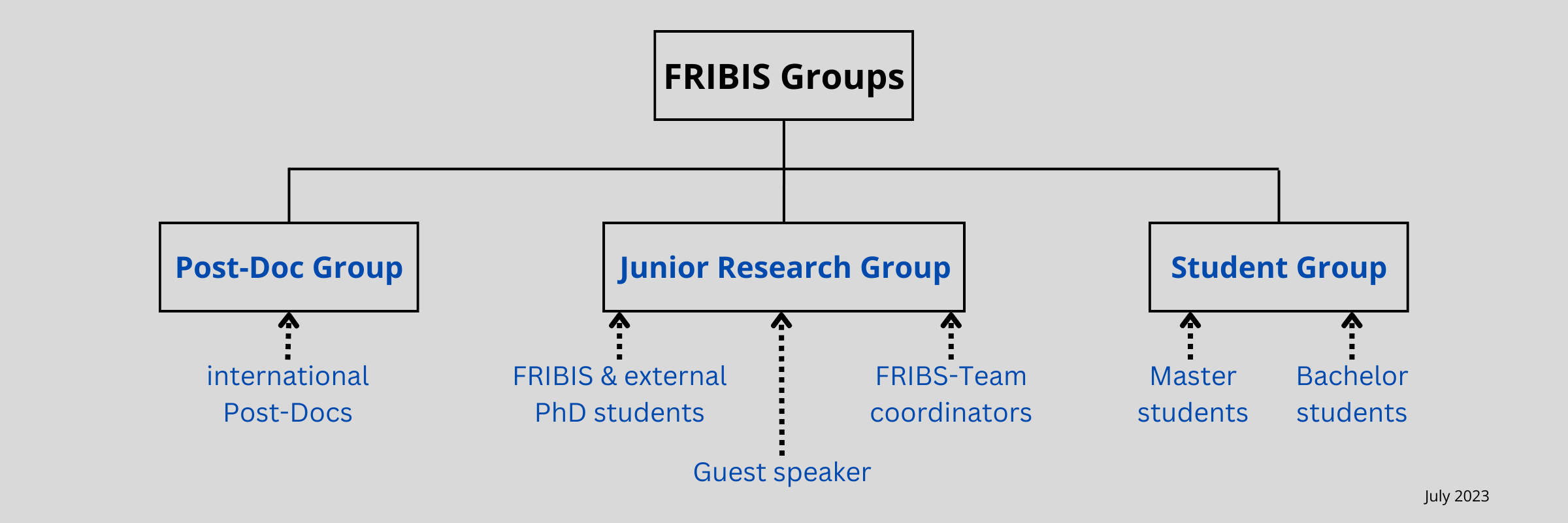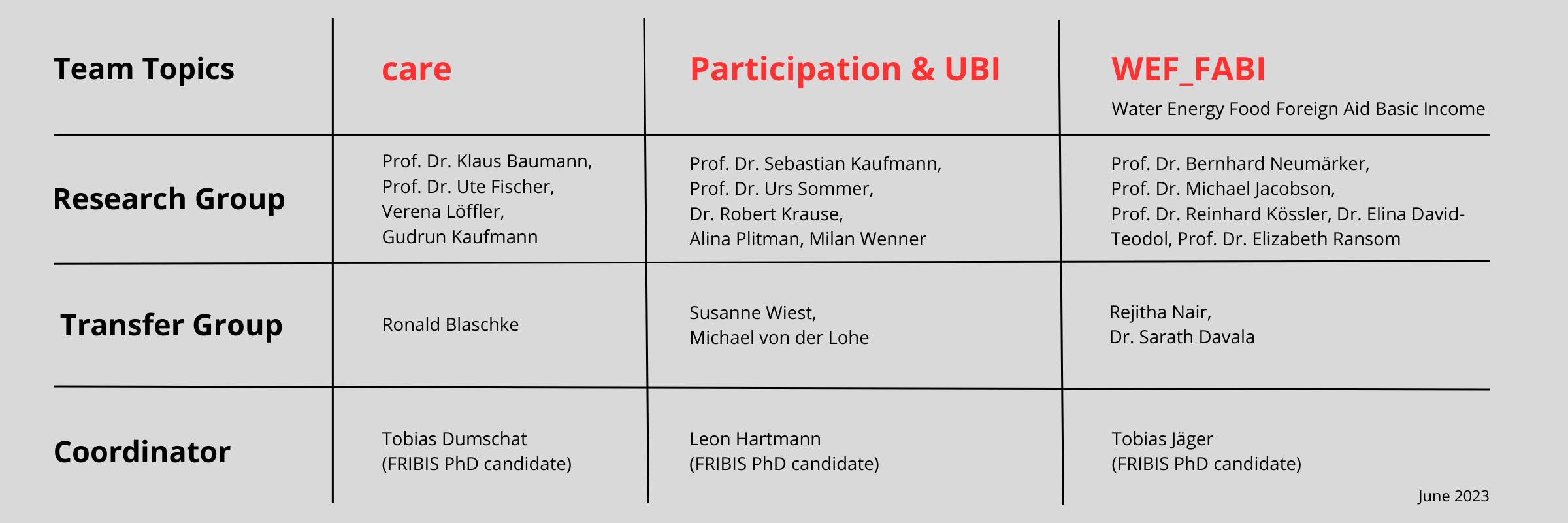FRIBIS Matrix
The leading founding director of FRIBIS is Prof. Dr. Bernhard Neumärker, Director of the Götz Werner Chair for Constitutional Economic Theory at the University of Freiburg. Further founding directors are Prof. Dr. Andrea Kiesel (Psychology), Klaus Baumann (Caritas Science and Christian Social Work), Gregor Dobler (Cultural Anthropology), Prof. Dr. Bernhard Nebel (Artificial Intelligence) and Matthias Nückles (Education Science), who all teach and do research at the University of Freiburg. Together, the founding directors lead the FRIBIS competence network as a decision-making body that is responsible for the affairs of FRIBIS.
In addition, several PhD students under the founding directors are employed at FRIBIS for research activities and take on FRIBIS-internal tasks (such as publication management, PR, event management, etc.) as staff members.
The work of FRIBIS takes place in FRIBIS teams which focus on specific topics and issues around Universal Basic Income (see below). A number of FRIBIS groups also engage in research activities.

PostDoc Group: The PostDoc Group is made up of post-doc FRIBIS team members and the heads of the two Junior Research Groups. The goal of this group is to develop new interdisciplinary project ideas, prepare applications for project funding and raise third-party funds.
Junior Research Group: In the Junior Research Group the FRIBIS team coordinators keep each other informed about the progress of their team’s work. External guests and PhD students from the FRIBIS teams also have a chance to present their research.
Student Group: The FRIBIS Student Group is open to all students who wish to participate in UBI research. Here students can refine their research under professional guidance, actively participate in FRIBIS and BIEN projects, publish their own work in the FRIBIS Discussion Paper series and participate in our events. They can also find supervisors for bachelor’s, master’s and PhD theses related to the UBI.
FRIBIS teams can be research teams connected to an ongoing practical project, or they can conduct and evaluate empirical studies and prepare them for media dissemination, carry out simulations, make theoretical and methodological contributions, act in an advisory or implementation-oriented capacity and generally explore possible effects of a UBI in various social fields as well as their implications for a just social contract.

The Board of Directors decides which applicants to accept as a FRIBIS team after an application has been submitted. There are three types of FRIBIS teams:
Standard FRIBIS Teams (SFT)
For approval as a Standard Team, only an informal application is required. An SFT may request support for travel expenses, events, meeting costs, small honoraria to third parties, media relations, publications, and the like. Larger amounts of support are not available to an SFT. However a team can be established as an SFT and later develop into an LFT.
Large FRIBIS Team (LFT)
To be approved as an LFT, an application is required detailing budget, timelines and preliminary work. For example, depending on the application, an LFT can receive a lump sum, to enable the employment of research staff and fees for members of the «Transfer Group».
External FRIBIS Team (EFT)
An EFT is an existing team with its own funding that benefits from being part of the FRIBIS network. Financial support from FRIBIS for EFTs is only provided to a limited extent.